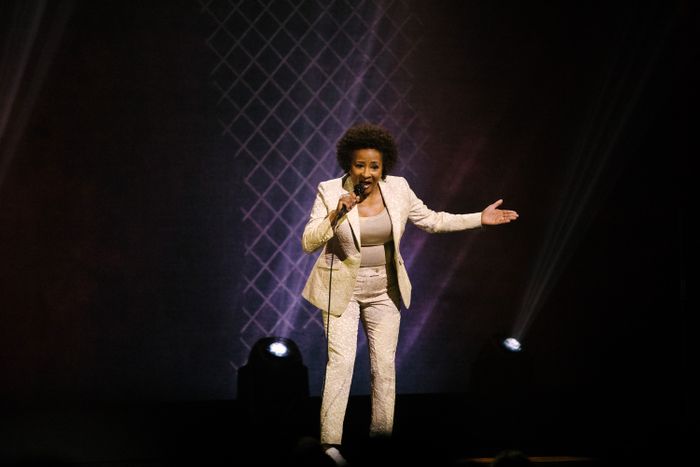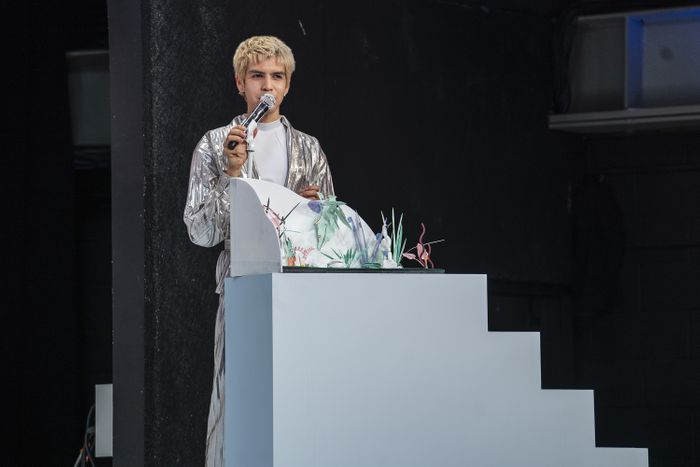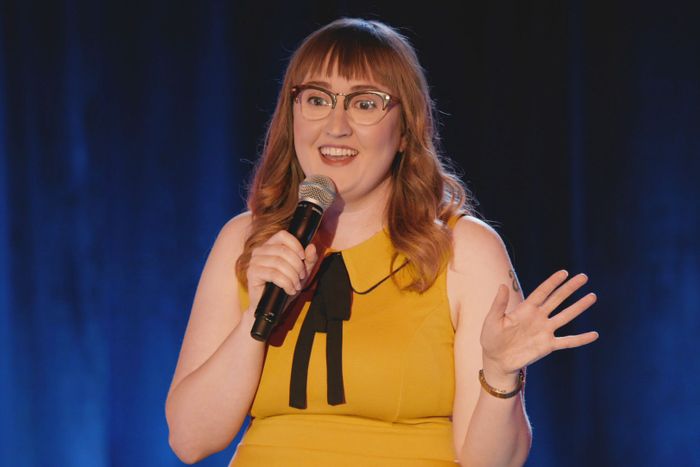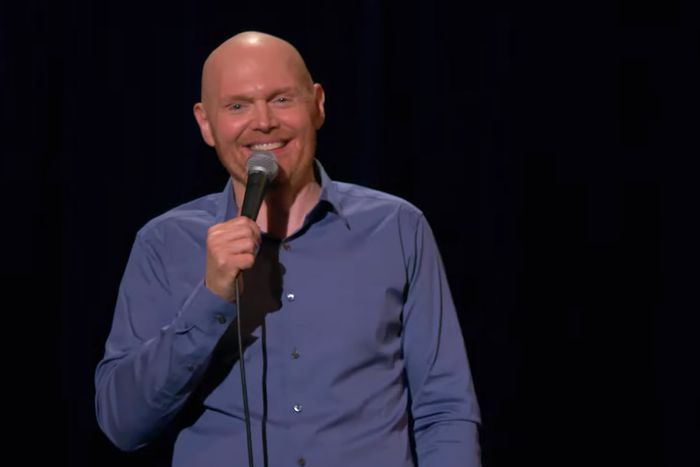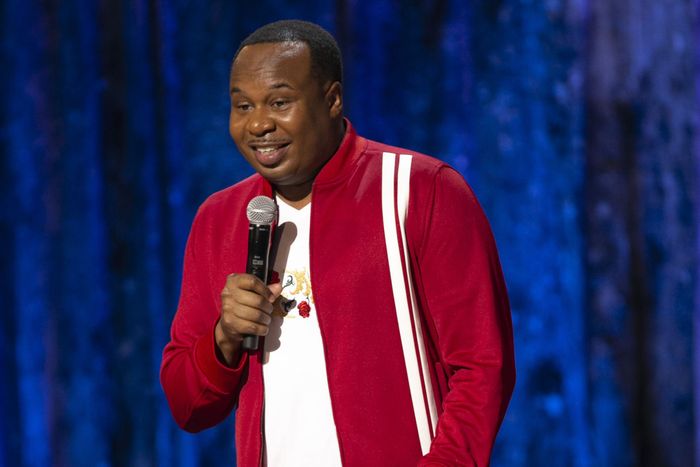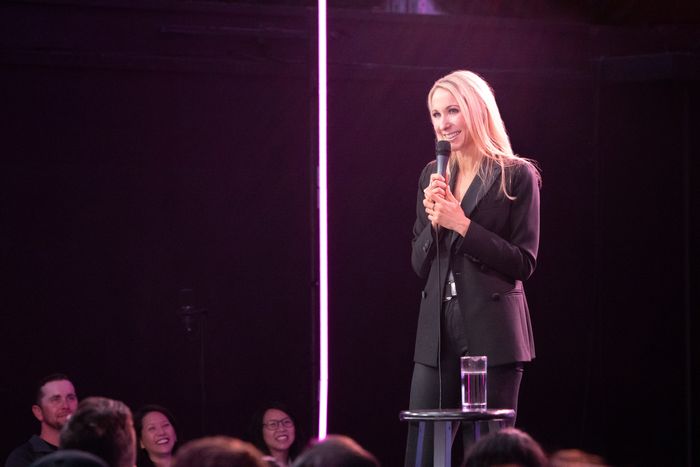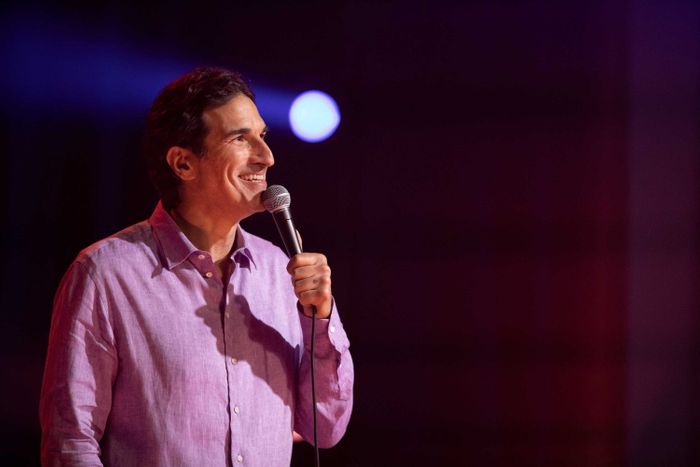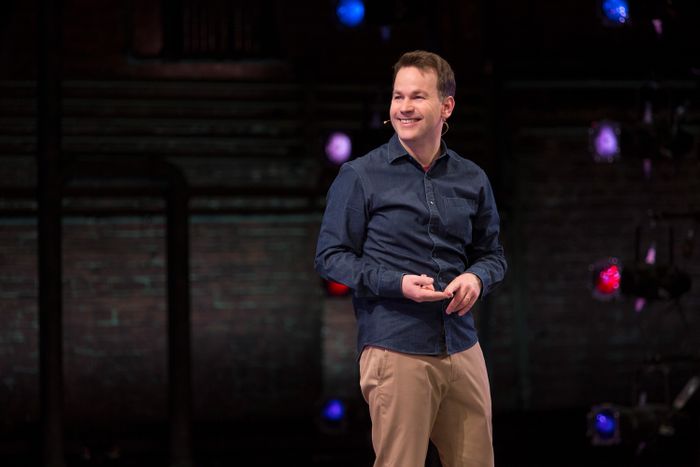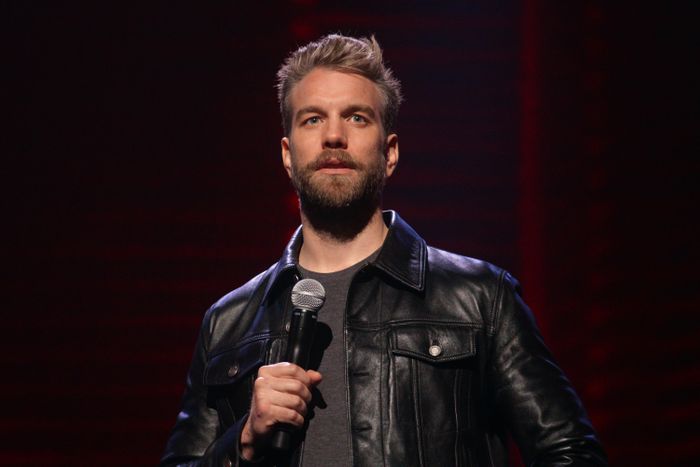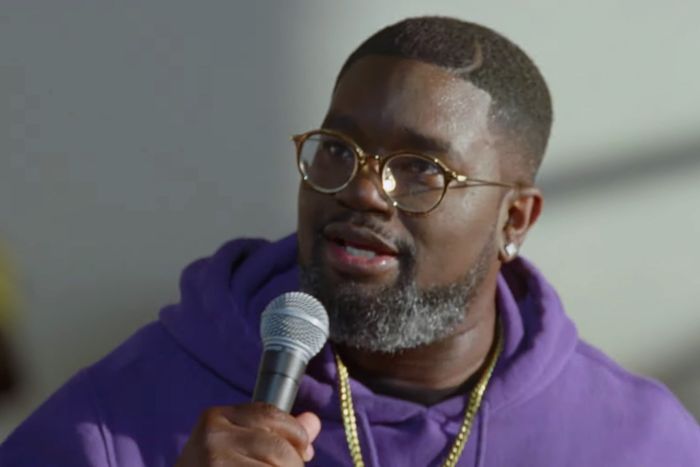
It’s important to say from the jump that I was initially told I would not have to rank the best comedy specials of the year.
I started writing Vulture’s comedy reviews in the middle of 2019, after senior writer Jesse David Fox took me out to lunch this summer and asked me to try out writing some comedy reviews. I did not immediately say yes, citing among other reasons that I knew very, very little about comedy. (You can hear a little more about this lunch, about me trying to figure out what comedy is, and about the whole list below on a special two-part episode of Good One. Listen to both parts here, or download them from Apple Podcasts, Spotify, Stitcher, Overcast, or wherever you get your podcasts.)
Since that lunch, comedy criticism has gradually become one of the most interesting parts of my job. There’s something so satisfying about comedy’s directness, about its combination of painstaking construction and gut-level reaction, and about the fact that there’s nowhere to hide. I’m still trying to figure it out, honestly, and while I think “trying to figure it out” is a good place to start from in writing criticism, it’s hardly the most authoritative place to come from when presenting a ranked list of bests. I came in late! I’m playing catch-up! What the hell do I know?
So as Mike Birbiglia explains in his special The New One, I was very clear that although I was fine picking ten comedy specials from 2019, I was not going to rank them. And like Birbiglia, my clarity did me absolutely no good. (Also, Birbiglia’s clarity was about not wanting children, and mine was about not wanting to make a numbered list.) There were several specials I wish I’d had room for here, especially Nate Bargatze’s The Tennessee Kid. The ordering of what I do have here should be considered for exactly what it is: a gut choice made sincerely but with the knowledge that it may well be wrong. Except for No. 1, which I think is correct.
10. Not Normal, Wanda Sykes
The joke that’s stuck with me the most from Sykes’s special is also the one that first made me love it. Her opening material on Trump feels obligatory and it lacks sharpness, but as she moves into more personal stories, she unspools a joke about the experience of being a black parent in a family with a white co-parent and white children. It’s a joke about her son trying to play with her, and in it, she deftly juggles flip-flopping perspectives, twists of misunderstanding, and a hilarious multilayered reinterpretation of the word play. It’s one of the best pieces of clean, hilarious, finely crafted comedy writing I came across all year.
9. My Favorite Shapes, Julio Torres
Sometimes stand-up comedy is a person standing on a stage in front of a microphone and telling jokes about their life. Sometimes, though, it’s Julio Torres dressed in a galactic silver suit, seated behind a conveyor belt that looks like it was designed by Lisa Frank, describing the inner life of a McDonald’s Happy Meal toy from the ’90s. Torres’s disorienting, defamiliarizing weirdness is a mask for how classic his comedy really is, though. His physical structures may be wild, but the underlying foundations are both effective and super traditional: They are jokes about formative events in his life, jokes that attack the unseen strangeness of everyday things, and jokes that work by forcing the audience to see the world through a different perspective.
8. Ice Thickeners, Emily Heller
A special that just hits me exactly where I live. Heller’s comedy is full of these wild, goofy assertions of the self, the kind of thing that’s often couched in self-deprecating or apologetic language especially when it’s about women. There’s none of that here. The twist in so many of these jokes is that she is exactly who she is, and she is happy to be that way. The shock of the joke is in how rare it is to see female self-confidence, and when other characters appear in her jokes, they’re often there to be baffled by her. It’s so fun to watch her create those silly situations so that time and again, she can shrug at everyone else’s dismay.
7. Paper Tiger, Bill Burr
I truly thought I was going to loathe Paper Tiger. A furious man yelling for an hour about his list of grievances against feminism is not my idea of well-made comedy or a good time. But what Burr does here is to build that character of himself so that he can undermine it, unspooling his fears about his anger, his need to one-up people, and his sense of being increasingly displaced in a changing world. Over and over again, Burr’s work builds arcs where he indulges in an outburst, steps back and examines how bad it was, and then tries to wrestle with why he felt the need to say it at all. It presents as big and loud and mad, and is really remarkably deft.
6. No One Loves You, Roy Wood Jr.
If this special were only the thread of jokes Roy Wood Jr. does about McDonald’s, it would still have made the top ten. It’s so much more than that, though. It’s a special with an argument, a point of view, and a commitment to saying the things Wood really cares about saying. And yet, Wood is able to do all of that without resorting to tired Trump clichés or exasperated blankness about the state of the world, instead weaving his arguments into great joke structures that feel novel and insightful.
5. Bangin’, Nikki Glaser
There’s a sensation when you’re listening to musical theme and variations where you first hear the theme, and then the first few variations feel like eye-rolling exercises. Okay, sure, you’re still doing it. Yep, there it is again. By the time you’re on to variation six or maybe ten the feeling shifts. You become overwhelmed with the focus and ingenuity it takes to sustain that kind of single-minded focus on one thing. The theme itself starts to shift, its contours become more meaningful, take on more depth. The playfulness of the exercise goes away, and instead you realize it’s an obsession, a way of plumbing depths of the self. This is how Nikki Glaser’s special works, and the theme and variations are an entire hour of sex jokes.
4. The Great Depresh, Gary Gulman
There were a few specials this year that used documentary footage to punctuate an hour of stand-up, but The Great Depresh was far and away the best of them. Gulman’s radical openness about himself and his history with depression is already impressive, but the special’s documentary insertions help it feel like the gargantuan, herculean feat that it is. Gulman is particularly good at creating images in his comedy, at landing on specific details that make images stick in the mind. (In The Great Depresh, for instance, it’s the fork in the ice cream, or the line about suicide notes and essay writing.) The documentary elements reinforce that aspect of his work, which makes the whole project feel like a unified piece both aesthetically and structurally.
3. The New One, Mike Birbiglia
An unendingly lovely and poignant piece of storytelling. The thing about The New One that’s stuck with me are all the ways Birbiglia finds to register change over the course of the production. There’s a big whoomp of a dramatic change that arrives halfway through the narrative, and there’s a moving, gorgeous emotional shift that appears at the very end. In and among those, though, Birbiglia finds all these other ways of showing the process of his own transformation, something he’s able to do in flashback, in real time, in external and internal ways. It’s a beautiful special about having children, but it’s mostly a special about the few moments in life when people really do find it in themselves to change.
2. Fire in the Maternity Ward, Anthony Jeselnik
The thing I admire most about Fire in the Maternity Ward is its unblinking commitment to being utterly unreadable. That does not sound like a good, relaxing time for the audience, and I don’t even think Jeselnik really wants it to be. What he creates instead is closer to a pinnacle of meticulous solipsism, a tower of rhetorical cards that could fall at any moment if he flinches and betrays some human person underneath the character of an asshole he creates. My love for this special is probably wildly masochistic, because one of my favorite moments is when he gets angry at the crowd for laughing too hard.
1. Live in Crenshaw, Lil Rel Howery
Without question, Live in Crenshaw is one of the most gorgeous things I saw this year in any medium or genre. The standout piece from Live in Crenshaw is Howery’s funeral story, a virtuosic and magnetic sequence where he embodies an entire ecosystem of people in and around his family after his uncle dies. It’s a glorious piece of comedy. But Live in Crenshaw is particularly stunning as a recorded document of a live event. Directed by Jerrod Carmichael and shot inside a window-lined gym during the magic hour, the lighting of Live in Crenshaw alone would put it among the most beautiful comedy specials ever made. The total concept of it — the way it amplifies Howery’s own comedic sensibility with a design that celebrates his audience’s responses — makes it not just one of the best of the year, but easily one of the best of the decade.
*This article appears in the December 23, 2019, issue of New York Magazine. Subscribe Now!
More From This Series
- The Best Board Games to Play Right Now
- The 10 Best TV Needle Drops of 2019
- The Weepiest TV Moments of 2019



